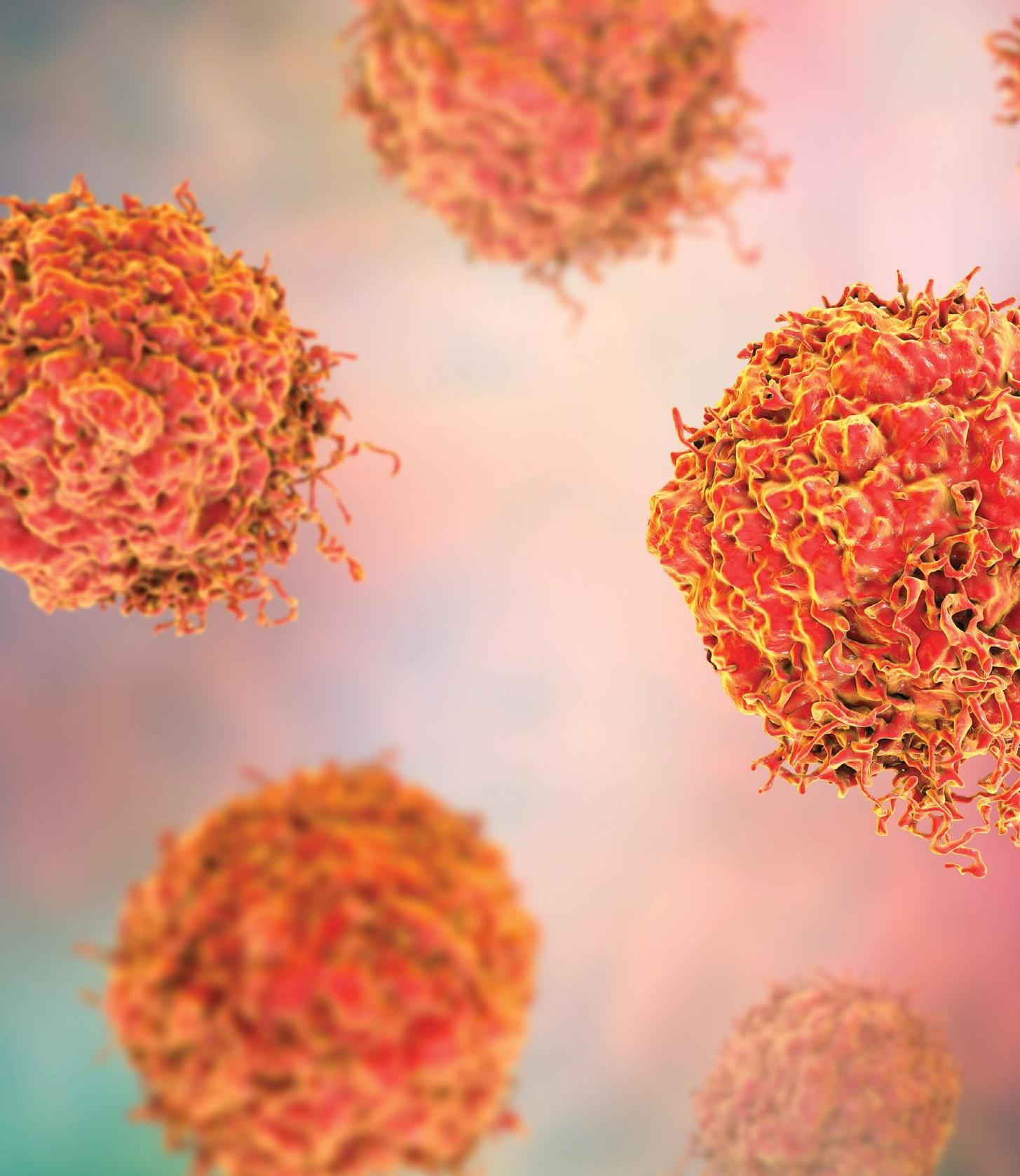
2 minute read
Fat blocked, metastasis stopped
HEALTH & BIOTECH
University of Adelaide-led research has found fatbreakdown plays a critical part in prostate cancer cells’ treatment resistance, survival and spread.
Advertisement
The enzyme DECR1 was found to enable and control the fat breakdown.
Blocking DECR1—which can be done using existing cardiovascular disease therapies—stopped the cancer cells spreading and killed them.
PROFESSOR LISA BUTLER Lead researcher
For men past their mid-40s, prostate cancer is an ever-present threat. Worldwide, it’s the second most common cancer among them, killing nearly 380,000 annually. Until now, a huge barrier to recovery has been prostate tumours’ eventual resistance to treatment. But exciting University of Adelaideled research has uncovered a hidden vulnerability in tumours’ cells—and a ready-made way to exploit it. The research team published two studies1,2 in 2020 showing three key findings: one, the breakdown of fats in prostate cancer cells is an important cause of treatment resistance; two, one particular enzyme enables that fat breakdown; and three, blocking that enzyme—which could be done with drugs already approved for use against cardiovascular disease—can stop the cancer’s spread, or metastasis, in its tracks. “We’re always wary of using the term ‘breakthrough’ in medical research,” says lead researcher Professor Lisa Butler. “But this could make an enormous difference to prostate cancer patients’ prognosis, and quality of life, in very short time. “Translating research findings from the lab to the clinic normally takes years; the ability to repurpose pre-approved drugs could drastically reduce that timeframe.” The team first found that prostate cancer cells rely heavily on polyunsaturated fatty acids to fuel their survival and spread throughout the body. The fats were either taken up through patients’ diets, or generated in the cancer cells themselves. “Importantly, we noticed that the cancer cells needed to carefully control the levels of these fats,” explains Butler. “An excess of them was toxic for the cells.” Building on this insight, the researchers sought to understand how that fat-level control was facilitated. “We identified an enzyme called DECR1 as being essential for fat breakdown. The cancer cells were using it both to generate energy and to protect themselves from dying due to excess fat levels. “And to our great delight, we found that by blocking the DECR1 we could not only stop the cancer cells from metastasising, but kill them.” The fact that approved medication already exists that mimics the DECR1-blocking role, Butler adds, is the icing on the cake. “This discovery provides the opportunity to take proven-safe drugs that are already in use for conditions such as angina, and redirect them to improve—potentially dramatically—prostate cancer survival rates, not to mention patients’ and their loved ones’ peace of mind. So that positive impact can be felt in a fraction of the time it would otherwise take to create a new therapy.” The team hopes to undertake proof-ofconcept clinical trials in 2021.
1Nassar, Z, Mah, CY, Centenera, M, Irani, S, Sadowski, M, Scott, J, Nguyen, E, Nagarajan, S, Moldovan, M, Lynn, D, Daly, R, Hoy, A & Butler, L 2020, Fatty Acid Oxidation Is an Adaptive Survival Pathway Induced in Prostate Tumors by HSP90 Inhibition, Molecular Cancer Research, DOI: 10.1158/1541-7786.MCR-20-0570 2Nassar, Z, Mah, CY, Dehairs, J, Burvenich, I, Irani, S, Centenera, M, Helm, M, Shrestha, R, Moldovan, M, Don, A, Holst, J, Scott, A, Horvath, L, Lynn, D, Selth, L, Hoy, A, Swinnen, J & Butler, L 2020, Human DECR1 is an androgenrepressed survival factor that regulates PUFA oxidation to protect prostate tumor cells from ferroptosis, eLife, 9:e54166 doi: 10.7554/eLife.54166










